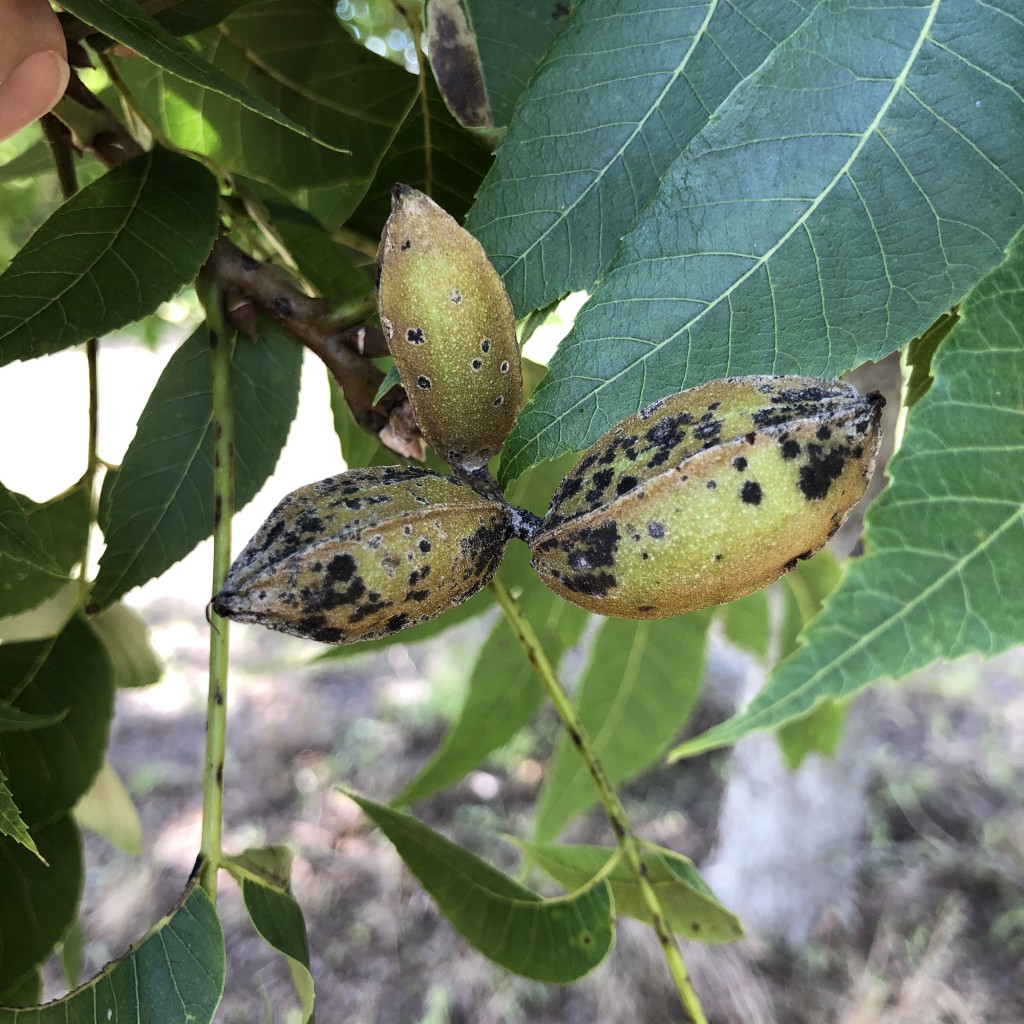
By Clint Thompson
It was better safe than sorry for one Georgia pecan producer. In a year filled with wet weather, scab disease has been a major problem for pecan farmers. But Eric Cohen was prepared and is expected to reap the fruits of his labor during harvest season.
“I’ve been real fortunate. I’ve been on an intensive spray program,” Cohen said. “We’ve had to tighten our spray schedules down. I spray like we’re going to have terrible scab every year, because I’ve seen this before. I sprayed when a lot of growers were not spraying, and I think that’s what’s helped me tremendously.”
Decreased Yields
Yields are expected to decrease in Georgia this year following last season’s 147.5 million pounds. Production is only expected to be about half of that this fall, due in large part to pecan’s alternate bearing cycle, but also because of scab disease which is rampant across the Southeast.
“I’m in good shape. But it’s like every other grower, one grower’s in really good shape, and one grower’s lost his crop,” Cohen said. “We’ve got a light crop plus we’ve got extreme disease pressure this year.
“I think, personally, it’s a 65 million-pound crop.”
According to the University of Georgia Weather Network, Cairo, Georgia received 13.29 inches of rain and 23 rainy days from July 1 to July 31. It received 28.54 inches from June 1 to Aug. 31.
Scab is a fungal disease that infects the leaves or nuts of pecan trees. If it affects the nut early enough, scab can cause the pecan to blacken and fall from the tree. Some growers may spray between 10 and 12 times during an average year to fight scab, depending on how much it rains during the summer. Scab thrives on trees that have received moisture.









